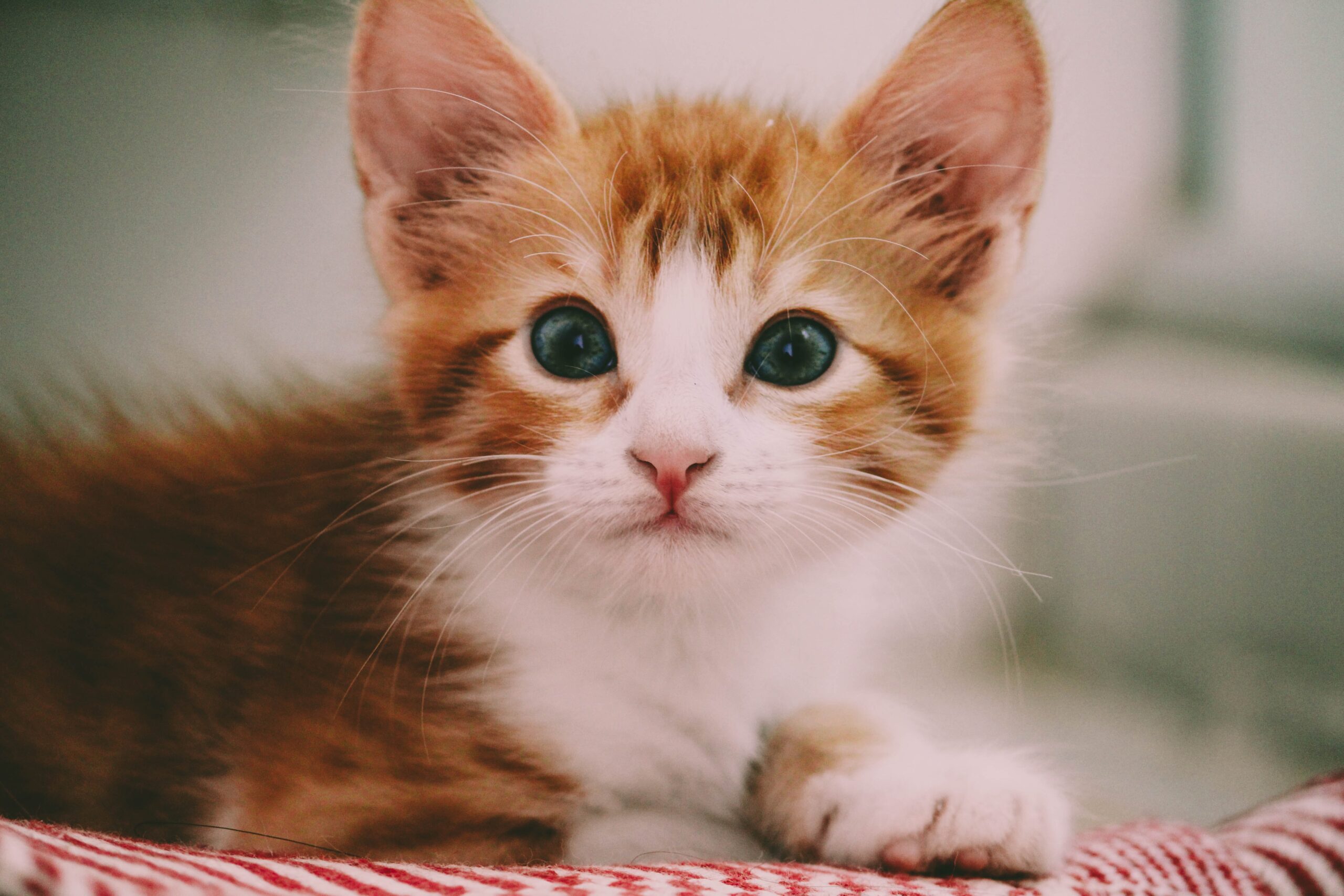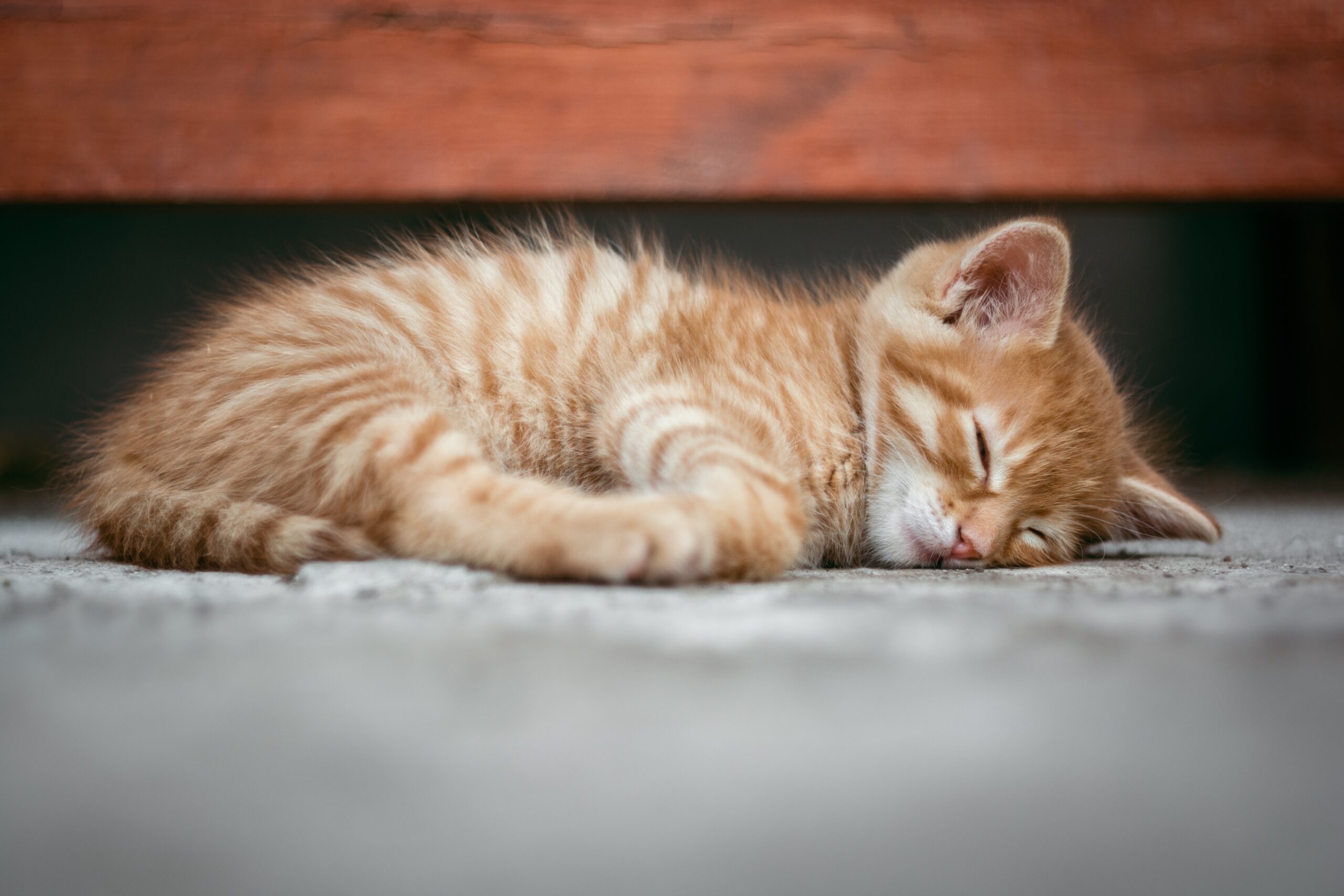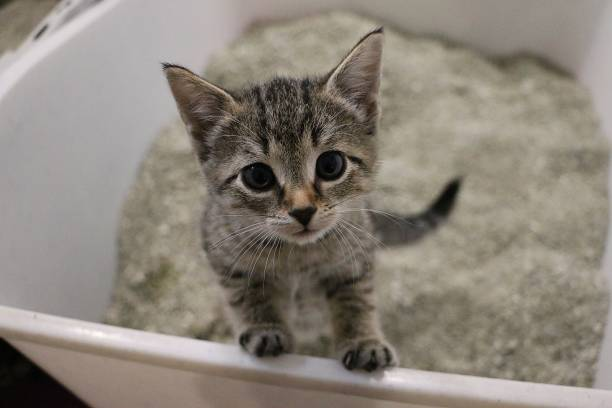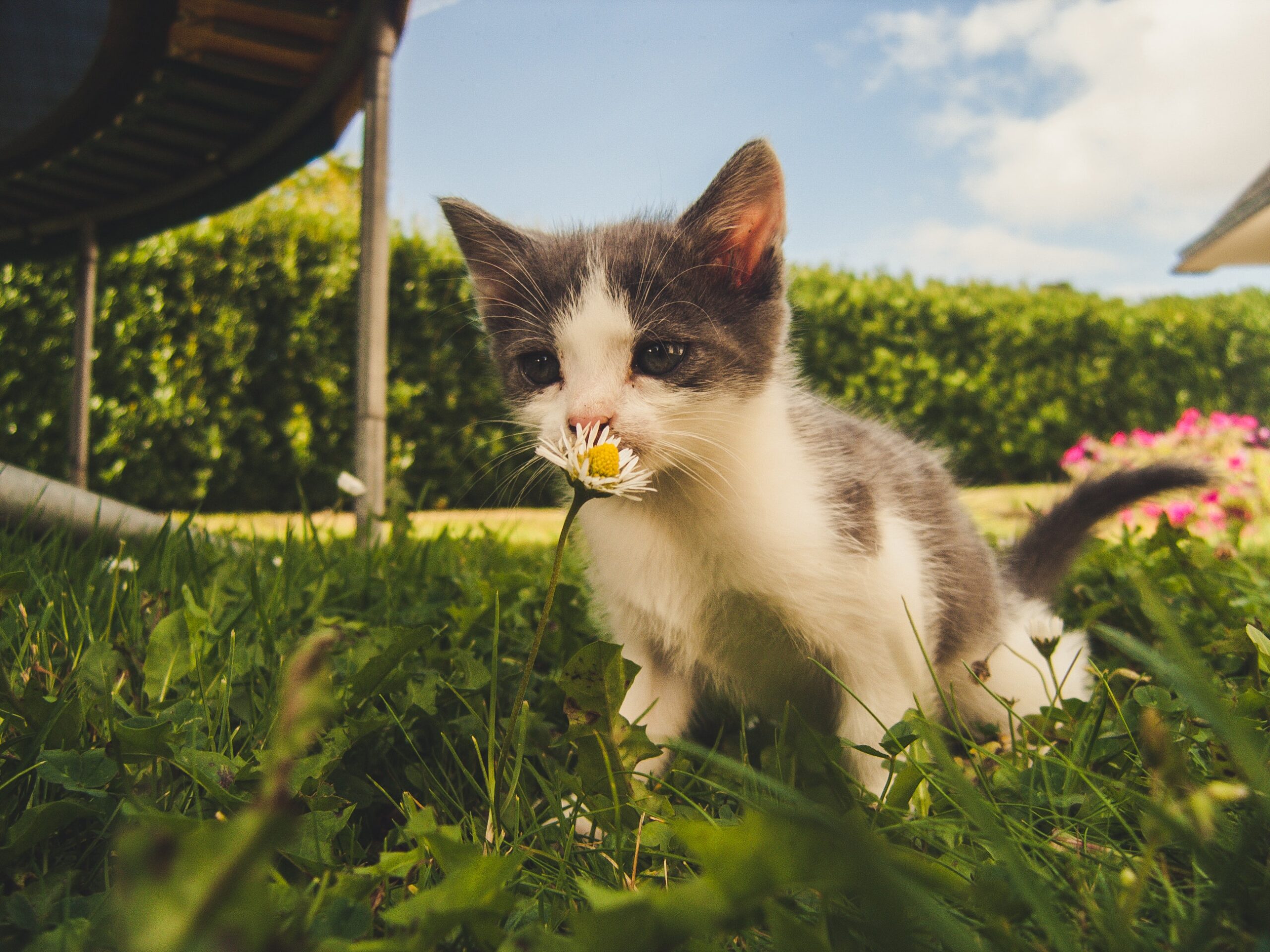Bringing a kitten into the household is an exciting and heartwarming decision that many families contemplate. The mere thought of a tiny, furry bundle of joy prancing around the house brings smiles to the faces of prospective kitten owners. A kitten represents new beginnings, companionship, and the promise of cherished memories to come. But how much work is involved in raising a kitten?
Welcoming a kitten into the family is an enchanting experience. Their playful antics, gentle purrs, and affectionate nature can quickly capture the hearts of everyone around them. The joy of witnessing a kitten explore its surroundings, frolic with toys, and form loving bonds with its human companions is incomparable and often fills a home with laughter and warmth.
As delightful as a kitten’s presence may be, it is essential to acknowledge the responsibilities that come with caring for a young and vulnerable life. This article aims to shed light on the dedication and commitment required to provide a loving and nurturing home for a kitten. From daily care routines to veterinary needs and behavioral training, prospective kitten owners will gain valuable insights into the level of work involved in raising a happy and healthy feline companion.
Whether you are considering adopting a kitten or have already welcomed one into your home, understanding the effort and care required will set the stage for a lifelong bond and a harmonious relationship with your new furry friend. So, let’s embark on this journey of discovery and embrace the adventure of kitten ownership with open hearts and open minds.
Preparing for a Kitten
Before bringing a kitten home, it’s essential to prepare the environment to ensure their safety and well-being. Kitten-proofing the home involves identifying potential hazards and making necessary adjustments. Kittens are curious and can get into mischief, so taking these precautions is crucial:
- Secure Electrical Cords: Cover or secure electrical cords to prevent the kitten from chewing on them, which could lead to electric shock or injury.
- Remove Toxic Plants: Some houseplants can be toxic to cats. Remove any toxic plants from the home and opt for cat-safe alternatives.
- Store Chemicals Safely: Keep cleaning products, pesticides, and other chemicals out of reach to avoid accidental ingestion.
- Block Off Small Spaces: Kittens love to explore, and they may crawl into tight spaces or small openings. Block off access to areas where they could get stuck.
- Store Breakable Items: Store fragile or valuable items out of the kitten’s reach to prevent accidents and damage.
By kitten-proofing the home, owners create a safe and secure space for their new furry family member to explore and play without unnecessary risks.
Welcoming a kitten requires a few essential supplies to ensure their comfort and well-being:
- Food: High-quality kitten food that meets their specific nutritional needs is essential for their growth and development. Consult with a veterinarian to choose the right type of food.
- Litter and Litter Box: A litter box with low sides is suitable for kittens, making it easy for them to enter and exit. Use unscented, clumping litter for ease of cleaning.
- Food and Water Bowls: Provide shallow, non-tip bowls for food and water, easily accessible to the kitten.
- Bed or Bedding: A cozy bed or soft bedding offers a comfortable spot for the kitten to rest.
- Toys: Interactive toys, such as balls, feathers, and catnip toys, promote mental and physical stimulation, preventing boredom.
- Scratching Post: A scratching post allows the kitten to satisfy their natural urge to scratch, keeping their claws healthy and saving furniture from damage.
- Grooming Supplies: A soft brush or comb helps to keep the kitten’s coat clean and free from tangles.
Having these essential supplies ready before the kitten’s arrival ensures a smooth transition into their new home and sets the stage for a happy and healthy life together.
With a kitten-proofed home and the necessary supplies at hand, prospective kitten owners can confidently welcome their new feline family member into a safe and loving environment.
Feeding and Nutrition
Understanding a Kitten’s Dietary Needs
Proper nutrition is vital for the healthy growth and development of a kitten. During their early months, kittens undergo rapid physical and cognitive development, making their nutritional requirements unique compared to adult cats. High-quality kitten food is essential as it provides the necessary nutrients for bone growth, muscle development, and a robust immune system.
Kittens are obligate carnivores, meaning their diet should primarily consist of meat-based proteins. Look for commercial cat foods labeled specifically for kittens, as they are formulated to meet their specific needs. These foods usually contain higher levels of protein, fat, and essential vitamins and minerals.
Regular Feeding Schedules and Portion Control
Establishing a regular feeding schedule is crucial to a kitten’s overall health and behavior. Kittens should be fed multiple small meals throughout the day to meet their high energy requirements. As a general guideline, kittens aged 8-12 weeks should be fed four meals a day, while those between 3-6 months can have three meals. By the time they reach 6 months old, most kittens can transition to two meals per day.
Ensure portion control to avoid overfeeding, which can lead to obesity and related health issues. Follow the feeding guidelines provided on the cat food packaging, but remember that individual kittens may have different appetites. Monitor their weight and adjust portion sizes accordingly.
Choosing the Right Cat Food and Treats
When selecting cat food, opt for reputable brands that meet industry standards for nutrition and safety. Look for foods that list real meat as the primary ingredient, rather than fillers or by-products. Avoid foods with excessive artificial additives, colors, or preservatives.
Treats can be a part of your kitten’s diet, but they should be given in moderation. Treats should complement their regular diet, not replace it. Choose healthy, specially formulated kitten treats or use small portions of their regular food as rewards during training sessions.
Always provide fresh and clean water to keep your kitten well-hydrated. Avoid giving cow’s milk, as many kittens are lactose intolerant and may experience digestive upset.
Providing proper nutrition is a fundamental aspect of responsible kitten ownership. Understanding a kitten’s dietary needs, establishing regular feeding schedules, and choosing high-quality cat food and treats contribute to their overall health, happiness, and well-being. In the next section, we will explore the importance of hygiene and grooming in maintaining a clean and healthy living environment for your furry companion.
Hygiene and Grooming
Litter Box Training and Maintenance: Kitten Dirty Work
Litter box training is one of the first essential lessons for a young kitten. Fortunately, cats are naturally inclined to use a litter box. Place the litter box in a quiet and accessible location, away from their food and water bowls. Show your kitten the litter box and gently place them inside after meals or naps. Be patient and consistent, rewarding them with praise or treats when they use the box correctly.
Regular maintenance of the litter box is crucial to keep it clean and inviting. Scoop the box at least once a day to remove waste, and change the litter entirely every one to two weeks. Use unscented, clumping litter that is safe for kittens to avoid potential respiratory issues. Proper litter box care will encourage good litter habits and prevent accidents around the house.
Brushing and Grooming to Prevent Hairballs and Matting
Grooming is an essential part of caring for your kitten’s coat and skin health. Regular brushing helps remove loose hair, prevents matting, and reduces the occurrence of hairballs, which can be a common issue in cats. The frequency of brushing depends on the length and thickness of your kitten’s fur. Long-haired breeds may need daily brushing, while short-haired breeds can benefit from grooming sessions once or twice a week.
Introduce grooming gradually and make it a positive experience for your kitten. Use a soft-bristled brush or a grooming mitt to gently remove tangles and loose fur. If your kitten shows signs of discomfort or stress during grooming, take short sessions and offer treats or playtime as positive reinforcement.
Scheduling Veterinary Check-Ups and Vaccinations
Regular veterinary check-ups are crucial for monitoring your kitten’s health and identifying any potential issues early on. Schedule a wellness visit with a veterinarian shortly after bringing your kitten home. During this visit, the vet will conduct a thorough examination, administer vaccinations, and discuss appropriate preventive care, such as flea and tick prevention and deworming.
Follow your veterinarian’s recommended vaccination schedule to protect your kitten from common infectious diseases. Vaccinations typically start at around 6-8 weeks of age and continue at specific intervals until the kitten is fully protected.
In addition to vaccinations, your veterinarian will discuss spaying or neutering options, which are essential for controlling the feline population and preventing certain health issues.
Regular veterinary care is not only crucial for your kitten’s health but also an opportunity to seek advice on nutrition, behavior, and any concerns you may have about your feline companion.
Proper hygiene and grooming practices are integral to maintaining a healthy and contented kitten. Litter box training and maintenance establish good litter habits, while regular brushing and grooming promote a clean and comfortable coat. Scheduling veterinary check-ups and vaccinations ensure your kitten’s overall well-being and set the foundation for a long and happy life together. In the next section, we will delve into the significance of exercise and stimulation in a kitten’s life, fostering both physical and mental health.
Exercise and Stimulation
Providing an Enriching Environment for Your Kitten
Creating an enriching environment is essential for your kitten’s well-being. Kittens are naturally curious and energetic, and they need opportunities to explore, climb, and play. Offer a variety of toys and structures to keep your kitten engaged and mentally stimulated. Cat trees, scratching posts, tunnels, and interactive puzzle toys are excellent choices to provide a stimulating environment.
Arrange climbing and scratching options near windows or high vantage points, allowing your kitten to observe the world outside and indulge their instinctual behaviors. This enriching environment not only keeps them physically active but also prevents boredom and destructive behaviors.
Playtime and Interactive Toys for Mental and Physical Health
Playtime is a vital aspect of a kitten’s daily routine. Engaging in interactive play helps your kitten develop coordination, agility, and social skills. Use toys that mimic prey-like movements, such as feather wands, laser pointers, and small balls. Engage your kitten in active play sessions, encouraging them to chase, pounce, and leap, simulating their natural hunting behaviors.
Rotate and introduce new toys regularly to keep playtime exciting and prevent your kitten from getting bored with the same toys. Monitor your kitten during play to ensure they do not become overly aggressive or exhausted.
Balancing Play and Rest for a Growing Feline
While play and exercise are essential, it is equally crucial to provide ample opportunities for rest and relaxation. Kittens have bursts of energy followed by long periods of sleep, mirroring their wild counterparts. Ensure your kitten has a comfortable and quiet space to rest undisturbed.
Avoid excessive play or activities that might strain their growing bodies. Allow your kitten to dictate the duration and intensity of play sessions. As they grow, you’ll notice changes in their energy levels and play preferences. Balancing play and rest ensures your kitten’s overall well-being and promotes healthy growth.
Providing a stimulating environment and engaging in regular playtime are vital for a kitten’s physical and mental development. An enriching environment keeps them entertained and prevents behavioral issues, while interactive play fosters social skills and physical abilities. Balancing play and rest ensures your growing feline companion leads a happy, healthy, and fulfilling life. In the next section, we will delve into the importance of training and behavior management in raising a well-behaved and happy kitten.
Training and Behavior
The Importance of Early Socialization and Training
Early socialization and training are critical for shaping a well-adjusted and well-behaved kitten. Socialization involves exposing your kitten to various people, places, sounds, and experiences during their early developmental stages. This process helps them become confident, friendly, and adaptable adults. Introduce your kitten to different environments, other pets, and people of varying ages to build positive associations and reduce the likelihood of fear-based behaviors later in life.
Basic training is also crucial to teach your kitten essential commands and boundaries. Start with simple commands like “come,” “sit,” and “stay.” Use positive reinforcement, such as treats and praise, to reward good behavior and encourage your kitten to repeat desired actions. Training not only fosters obedience but also strengthens the bond between you and your feline companion.
Addressing Common Behavioral Issues in Kittens
While kittens are generally well-behaved, they may display some common behavioral issues that require attention and correction. These issues may include scratching furniture, biting, excessive meowing, or litter box problems. Understanding the underlying reasons for such behaviors is essential in addressing them effectively.
For example, scratching is a natural behavior for cats, and providing appropriate scratching posts can help redirect their attention away from furniture. Biting can be curbed by not engaging in rough play and offering appropriate chew toys. Excessive meowing may be a sign of hunger, boredom, or stress, and identifying the cause can help in addressing the issue.
It’s crucial to use positive reinforcement and patience when addressing behavioral problems. Avoid punishment, as it can create fear and anxiety in your kitten and may exacerbate the issue. Instead, focus on redirecting their behavior and rewarding them when they demonstrate positive alternatives.
Using Positive Reinforcement Techniques for Effective Training
Positive reinforcement is one of the most effective and humane training methods for kittens. When your kitten displays desired behaviors, such as using the litter box or obeying commands, offer treats, praise, or gentle pets as rewards. Positive reinforcement strengthens the association between the behavior and the reward, increasing the likelihood that your kitten will repeat the behavior in the future.
Consistency is key in using positive reinforcement. Set clear expectations and rewards for desired behaviors, and be patient as your kitten learns. Avoid punishing or scolding your kitten for mistakes or accidents, as this can create anxiety and hinder the learning process. Instead, redirect their attention to appropriate behaviors and reinforce those positively.
Early socialization and training play a crucial role in shaping your kitten’s behavior and ensuring they become well-behaved and confident adult cats. Addressing behavioral issues with patience and positive reinforcement fosters a harmonious relationship between you and your furry companion. In the next section, we will explore health concerns and emergencies, highlighting the importance of monitoring your kitten’s well-being and being prepared for any unforeseen medical situations.
Health Concerns and Emergencies
Recognizing Signs of Illness in Kittens
As a responsible kitten owner, it is essential to be vigilant about your kitten’s health and recognize early signs of illness. Kittens are more vulnerable to certain health issues, so being proactive can make a significant difference in their well-being. Watch out for symptoms such as lethargy, loss of appetite, vomiting, diarrhea, difficulty breathing, excessive sneezing, or changes in litter box habits.
Kittens are also prone to parasitic infestations, such as fleas, ticks, and intestinal worms. Regularly check for signs of these pests and seek appropriate treatment if necessary. If you notice any concerning signs or changes in your kitten’s behavior or health, consult your veterinarian promptly.
The Responsibility of Monitoring Health and Well-Being
Maintaining your kitten’s health is an ongoing responsibility. Regularly schedule veterinary check-ups, especially during their early months when they require vaccinations and preventive care. Regular examinations allow your veterinarian to detect potential health issues early on and provide appropriate guidance for your kitten’s development.
Keep a watchful eye on your kitten’s weight, growth, and overall behavior. Monitor their eating and drinking habits, litter box usage, and playfulness. Changes in these routines may indicate potential health concerns that require attention.
In addition to physical health, prioritize your kitten’s emotional well-being. Spend quality time with them, provide mental stimulation, and ensure they feel safe and secure in their environment. A content and stress-free kitten is more likely to thrive and remain in good health.
Being Prepared for Emergencies and Having a Reliable Vet
Accidents and emergencies can happen at any time, so it is crucial to be prepared. Have a first-aid kit handy with essential items, such as gauze, adhesive bandages, hydrogen peroxide, and a pet thermometer. Familiarize yourself with basic first-aid procedures, but always seek professional veterinary care for serious injuries or sudden illnesses.
Having a reliable and trusted veterinarian is essential in providing the best care for your kitten. Research local veterinary clinics, read reviews, and ask for recommendations from other pet owners. Find a veterinarian who is experienced with cats and whom you feel comfortable discussing your concerns and seeking advice.
Being proactive in monitoring your kitten’s health and well-being is vital for early detection and prevention of potential health issues. By recognizing signs of illness, scheduling regular check-ups, and being prepared for emergencies, you can ensure your kitten receives the care it needs to lead a healthy and happy life. In the final section, we will reflect on the journey of raising a kitten and the lifelong companionship and joy that comes from being a responsible pet owner.
Time and Attention
The Reality of a Kitten’s Need for Constant Supervision
Owning a kitten requires a considerable investment of time and attention. Just like human infants, kittens are highly dependent on their caregivers and need constant supervision, especially during their early weeks. They are curious and can get into potentially dangerous situations if left unattended. It is crucial to create a safe and secure environment for them and closely monitor their activities to ensure their well-being.
Kittens are also social creatures and thrive on companionship. They seek interaction and playtime with their human family members. Regular engagement and attention help build a strong bond and promote emotional development. Neglecting this need for interaction can lead to behavioral issues or even emotional distress in your kitten.
Balancing Kitten Care with Personal and Work Commitments
While owning a kitten is rewarding, it also comes with responsibilities that may impact your personal and work life. Balancing kitten care with other commitments requires careful planning and time management. Consider how much time you can realistically devote to your kitten’s care and make adjustments to your daily schedule as needed.
Enlist the help of family members or roommates in sharing responsibilities, such as feeding, playtime, and grooming. Set up a consistent feeding and playtime routine that fits your lifestyle, as kittens thrive on predictability and structure.
Importance of Quality Time and Attention for a Happy and Well-Adjusted Kitten
Despite the challenges of balancing responsibilities, remember that quality time and attention are crucial for a happy and well-adjusted kitten. Regular one-on-one interactions, cuddles, and play sessions contribute to their emotional well-being and strengthen the bond between you and your furry companion.
Playtime is not only a form of entertainment but also essential for your kitten’s physical and mental development. Engaging in interactive play and providing enrichment activities stimulates their cognitive abilities and keeps them physically active, leading to a contented and well-adjusted kitten.
Be present during your kitten’s key developmental stages, as they shape their personality and behavior. Your nurturing guidance and consistent attention lay the foundation for a confident and socially adept adult cat.
Financial Considerations
Calculating the Costs of Owning a Kitten
Owning a kitten involves various expenses, and it is essential to be financially prepared for the responsibilities that come with it. Before bringing a kitten home, calculate the initial costs, including adoption fees or purchase price, necessary supplies like a litter box, food and water bowls, toys, scratching posts, and a comfortable bed. Additionally, consider the cost of spaying or neutering, initial vaccinations, and a thorough veterinary examination.
Budgeting for Food, Litter, Toys, and Medical Expenses
Once your kitten is settled, ongoing expenses will include food, litter, toys, and regular veterinary care. High-quality kitten food, as well as treats and supplements, can contribute to a significant portion of your budget. Litter expenses depend on the type of litter you choose and how often you replace it. Toys and scratching posts may need replacement over time, especially as your kitten grows.
Furthermore, budgeting for regular veterinary check-ups, vaccinations, flea and tick prevention, and potential unexpected medical emergencies is crucial. Having a separate fund for medical expenses or considering pet insurance can provide financial peace of mind in case of unforeseen health issues.
Being Prepared for Long-Term Financial Commitments
As your kitten grows into an adult cat, the financial commitment will extend over many years. Cats can live well into their teens or even early twenties, so it’s essential to be prepared for long-term expenses. As your cat ages, they may require more frequent vet visits and additional medical care. Regular dental check-ups, blood tests, and prescription medications are common aspects of senior cat care that should be factored into your budget.
Consider setting aside a portion of your monthly income specifically for pet-related expenses. Having a dedicated pet fund ensures you are financially prepared for any future costs and can provide your feline companion with the best care throughout their life.
Owning a kitten is not only a time commitment but also a financial one. Carefully assess the initial costs and ongoing expenses associated with kitten ownership, including food, litter, toys, and medical care. Budgeting wisely and being prepared for long-term financial commitments will enable you to provide your beloved feline friend with the care and attention they need throughout their life.
Growing up with Your Kitten
The Transitional Phases from Kittenhood to Adulthood
The work doesn’t end as your kitten transitions into a cat. As your kitten grows, they go through various developmental stages, each with its unique characteristics and needs. The kittenhood phase is marked by playfulness, rapid growth, and the need for constant supervision and socialization. During adolescence, which typically occurs between 6 months to 2 years, your kitten will experience hormonal changes and may exhibit more independent and exploratory behaviors.
As your kitten enters adulthood, usually around 2 to 3 years old, they reach their full size and maturity. They may become more settled and develop distinct personality traits. Understanding these transitional phases helps you adapt your care routines and provide appropriate support for your cat’s changing needs.
Adjusting Care Routines as Your Cat Matures
As your kitten becomes an adult cat, certain aspects of their care routine may need adjustment. Their dietary needs may change, and you may need to transition from kitten food to adult cat food to meet their nutritional requirements. Adult cats also require less frequent meals, usually transitioning to a feeding schedule of two meals per day.
Pay attention to changes in your cat’s activity level and adjust playtime and exercise accordingly. While adult cats may not be as active as kittens, engaging in regular interactive play sessions can keep them mentally stimulated and physically healthy.
Maintaining a clean and safe environment remains essential throughout your cat’s life. Regularly clean the litter box, provide fresh water, and ensure that your home remains free from hazards. Also, continue regular veterinary check-ups and vaccinations to monitor your cat’s health and detect any potential issues early on.
The Lifelong Companionship and Joy of Owning a Well-Cared-For Cat
The journey of growing up with your kitten and witnessing their transformation into a fully-fledged adult cat is a rewarding experience. As a responsible and caring pet owner, the time, effort, and love you invest in their well-being will result in a loving and devoted companion.
Owning a well-cared-for cat brings a sense of fulfillment and joy to your life. The strong bond you forge with your feline friend can last for many years, and the companionship they provide can be incredibly comforting and enriching. Cats are known for their independence and unique personalities, and as they mature, they develop their distinct quirks and preferences, making every day with them a delightful adventure.
The unconditional love and affection your cat gives you in return for your care are incomparable. The simple act of curling up on your lap, purring contentedly, or playfully chasing a toy can brighten even the most challenging days.
How Much Work is a Kitten?
Owning a kitten is a delightful journey that brings joy, companionship, and love into our lives. However, it also comes with a set of responsibilities that should not be underestimated. From the initial commitment of preparing your home for a kitten’s arrival to providing proper nutrition, hygiene, grooming, training, and healthcare, responsible kitten ownership demands dedication, time, and effort.
Understanding the specific needs of a growing kitten, such as socialization, exercise, and mental stimulation, allows us to foster their development into well-adjusted and happy adult cats. Monitoring their health and being prepared for potential emergencies are essential aspects of being a responsible pet owner.
The rewards of responsible kitten ownership are immeasurable. The joy of bonding with a playful and affectionate kitten, the comfort of their presence during difficult times, and the unconditional love they offer are unparalleled. The journey of raising a kitten into a mature, well-cared-for cat is immensely rewarding, bringing a sense of fulfillment and meaning to our lives.
A well-loved and well-cared-for cat reciprocates our affection, becoming a loyal and devoted companion for many years. The shared moments of happiness, laughter, and shared experiences create lifelong memories that enrich our lives and warm our hearts.
To those considering bringing a kitten into their lives, I encourage you to make informed decisions and carefully assess the responsibilities and commitment involved. Owning a kitten requires more than just providing food and shelter. It demands time, attention, and a deep sense of care and responsibility for the well-being of a living being that depends on you.
Before making the decision to adopt or purchase a kitten, educate yourself about their specific needs and the financial implications of pet ownership. Consider your lifestyle, work schedule, and the available support system to ensure you can provide the love, care, and attention your feline friend deserves.
By being a responsible and informed pet owner, you lay the foundation for a harmonious and fulfilling relationship with your furry companion. The effort you invest in their care will be rewarded with unwavering loyalty, affection, and the joy that comes from sharing your life with a happy and healthy cat.
May this article serve as a guide and inspiration to all potential and current cat owners, fostering the understanding and commitment needed to provide the best possible life for our feline friends. Embrace the journey of kitten ownership with love, patience, and dedication, and you will be rewarded with the incomparable love and companionship of a cherished feline companion.










